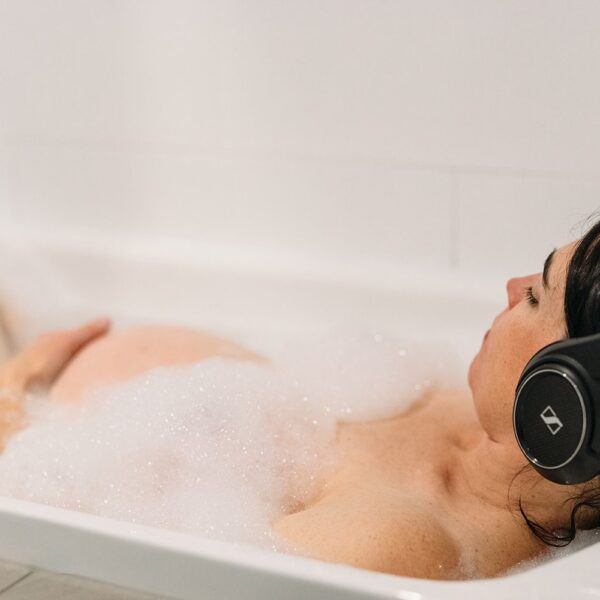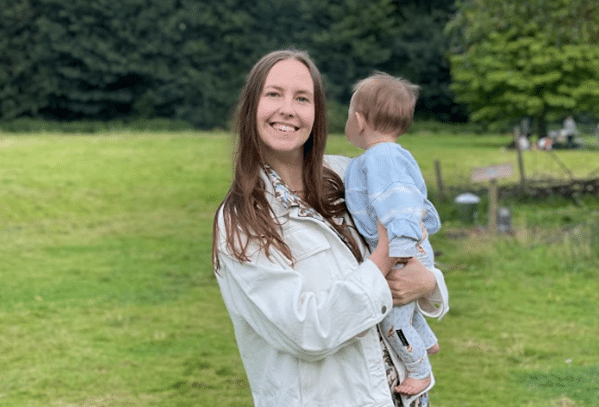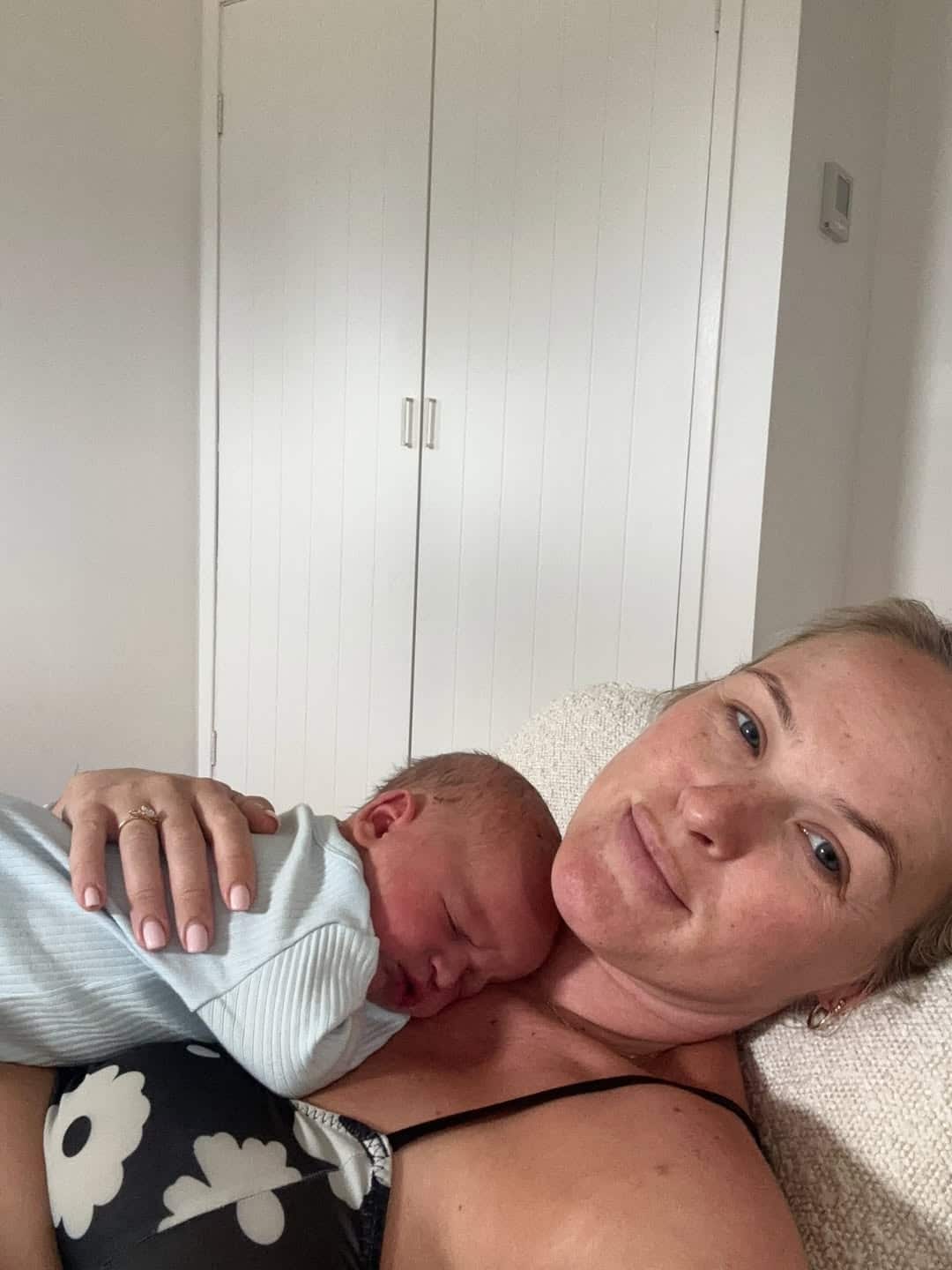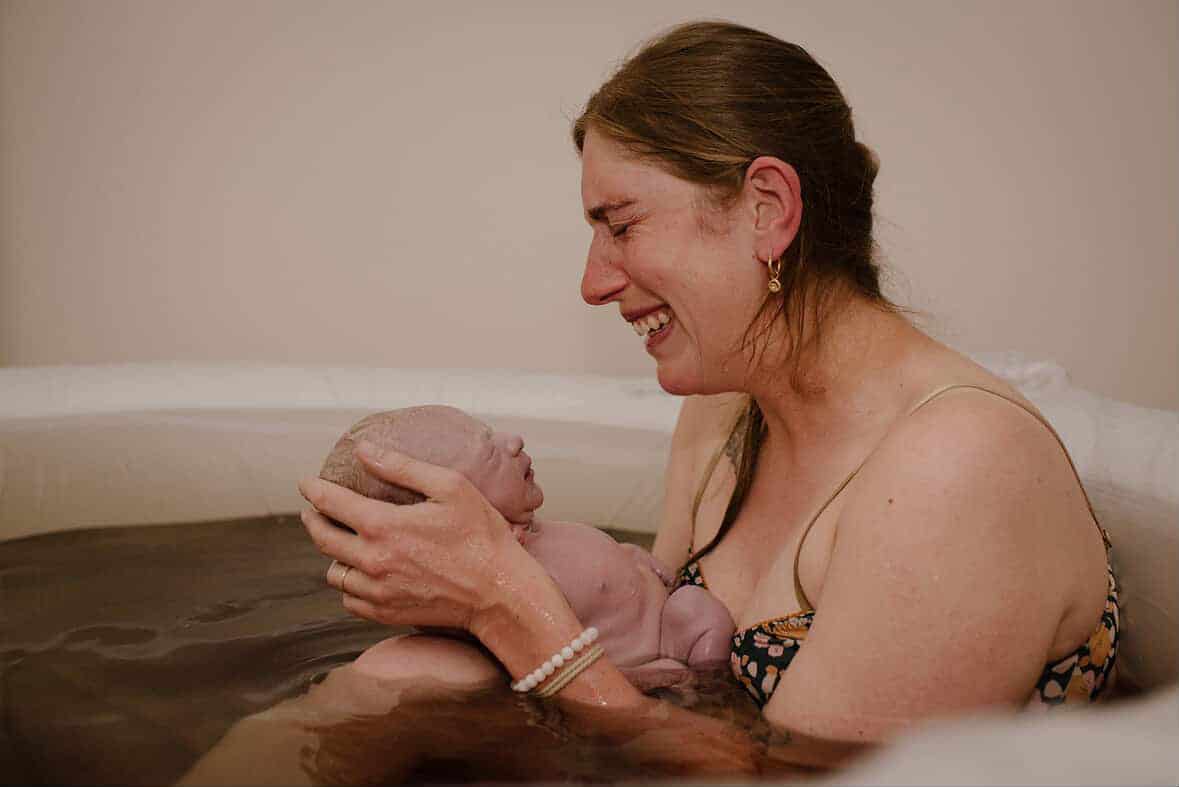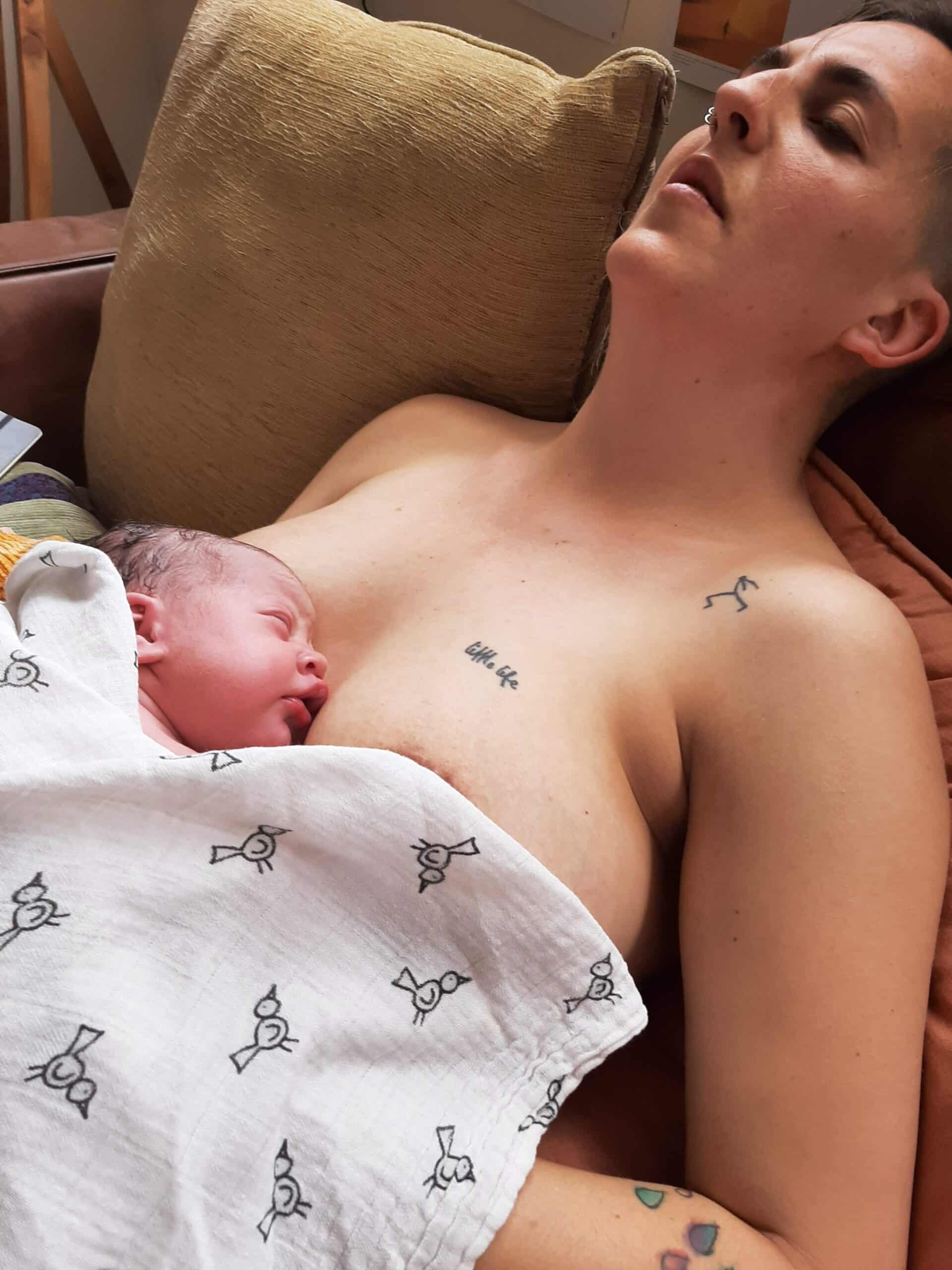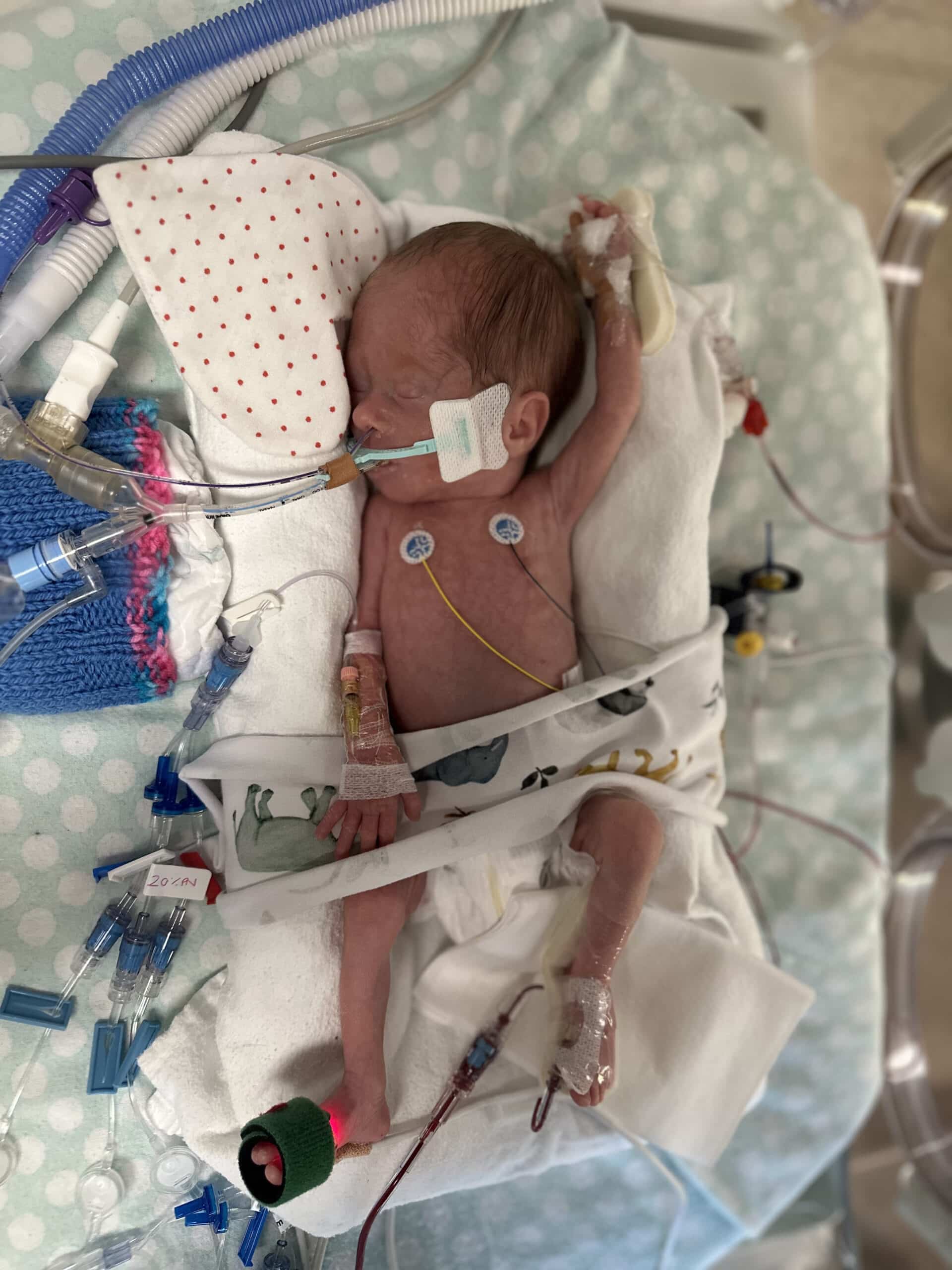Podcasts Helen | Postpartum – sleep support, Early Parenting Unit, pregnancy after loss, postpartum after loss
EPISODE 489
Helen | Postpartum – sleep support, Early Parenting Unit, pregnancy after loss, postpartum after loss
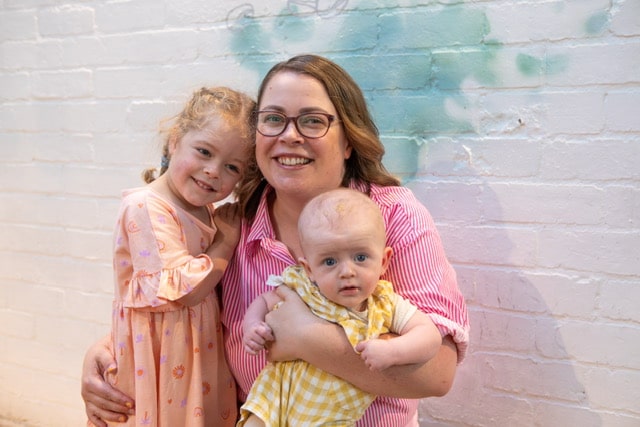
When we talk about infant sleep we also need to consider maternal sleep. There’s a strong link between sleep deprivation and maternal mental illness with studies showing that lack of sleep is an independent risk factor for depression and perinatal suicide. If you’re sleep deprived and feel like you need support, you can reach out to PANDA, COPE or the Gidget Foundation for immediate connection with a professional who can offer reassurance and referrals. For a mental health emergency, call 000.
“Lincoln had a diagnosed genetic fault and that caused a lot of physical abnormalities. We found out in pregnancy that Sully had the same mutation so there was a huge mental block for me around the fact that this mutation had taken a baby from me before; in my mind, that’s the only outcome I knew. There were lots of mental blocks around me connecting with the baby in pregnancy. After birth I heard him cry and when they put him in my arms I was squinting and I could see that he was healthy and formed and looked the way most newborns do. There was relief and reassurance then but you can never erase what you brain has been through and is trying to tell you
“We talk about pregnancy after loss but there’s less of a conversation about postpartum after loss. Postpartum was full of lots of complex emotions; I cried a lot when Sully was meeting milestones because I knew Lincoln would never meet them. There was never that period to fully allow myself to be immersed in positive thoughts; there’s always that lingering grief and devastation.
“As a midwife in the perinatal trauma space I had all the tools at my disposal so I knew what to do to protect my mental health. I had a trusted obstetrician because it was a high risk pregnancy, most of the clinicians I worked with I had a relationship with so they knew my story and I didn’t need to repeat anything to them and relieve it in awkward clinical encounters. I also had a perinatal psychiatrist and when I was 34 weeks she went through a plan she’d created for my team and she sent it to my obstetrician and the midwife managers of the units; a list of my diagnoses, how they were being managed, what they might see if there was an exacerbation of symptoms and how to treat them. It was terrific to have her input and have a plan in place. Luckily I didn’t have any extreme exacerbations but we had a solid team around us and clear plans for any changes.
“Sully had his first feed in recovery. From a medical perspective, my recovery was very straightforward. I remember crying on day three – that typically baby blues – but I was also head over heels in love with him. I was relieved that the normal, physiological hormonal pathway was happening. I remember recognising it and being really aware of leaning into it and relishing it. When I think of the first few weeks at home with Sully, it was really blissful and I felt really lucky.
“I had a fairly good understanding of what sleep would look like in the early days. He was pretty settled once we put some strategies in place to stay asleep in the bassinet. At about 5-6 weeks he started having some longer stretches at night and had distinct night/day action so I presumed we’d be okay. In a sense I was a bit cocky because once Millie was out of that initial newborn, colicky stage, she was a unicorn sleeper.
“At around four months there’s major developmental changes and that prompts sleep disturbances. Sully went from being up once or twice a night to waking frequently and I presumed it would take a few weeks and then he’d go back to his regular sleep pattern. But a few weeks passed and things didn’t go back and I felt like there was always a reason why he was waking and all of a sudden, he was six months and still waking a lot. He’d gone from doing two-hourly wakes to waking frequently. The night I knew we needed to go to sleep school he woke 12 times before 10:30 pm. I stopped counting how often he was waking up, to be honest. I’d barely got him settled before he was awake again.I had a fairly reasonable understanding of sleep strategies but I didn’t have the energy or capacity to implement it at home; I was too tired.
“It’s a very vicious feedback cycle because no one is getting quality sleep so everyone is in survival mode. We decided we wouldn’t feed at every wakeup so he wasn’t constantly feeding and we really were on the same page in terms of our approach to settling and sleep.
“I’d heard of sleep schools and knew they were an option. I spoke to my psychiatrist as well because I had one day where I had a lot of mental health warning signs. My trauma informs so much of my parenting and that’s usually concerned with my child’s health. She was really receptive and she encouraged me by sending referrals to all the sleep schools and I chose one from there. I was really lucky –- there was no waitlist at the place I chose so I started ten days later.
“It’s a sleep and mental health unit in one; it wasn’t explained to me that way and when I got there they told me the average length of stay is two weeks. I was relieved I wasn’t going to be picked out after 3-4 nights but I was shocked about the two weeks. For his first sleep I was encouraged to do what I usually did and that was feed him to sleep. A lot of their strategies weren’t even directly related to sleep; they planned to up his solids, he was in a room across the hallway that was dark, warm and had white noise playing. We were in such a state of chaos beforehand so even though we’d introduced solids, he was so miserable and probably tired, hungry and sad so getting him into a better routine with reliable sleep, he was having three solid meals and two good sleeps a day.
“They really supported me to do what I wanted to do. I was feeding to sleep because it’s what I know and it’s easy. They presumed I’d want to change it but I didn’t – I enjoy it – and they were really supportive of that. I was resigned to going in and navigating some degree of crying but I was so relieved that he was never left on his own; if he was upset someone was always him. If he was crying, he was being comforted.
They have a psychiatrist who oversees everyone who is admitted, they have group therapy sessions so they’re looking to support parents and promote baby’s development; it was a really holistic approach.
“From my perspective, I needed strong evidence that he was breaking his habits. We were there just under two weeks and I think part of the reason we stayed that long – even though Sully had improved significantly after a few days – was that the staff could see how anxious I was so their intention was to help me get to a better place so I could go home feeling confident. It was such a relief as a health professional to not feel pressured to discharge; it was driven by what I needed and wanted. I definitely needed that bit longer to feel reassured about going home.
“I asked my instagram community for recommendations on room heaters because the room he was sleeping in was quite warm and cosy and I wanted to replicate that at home. It was a bit of mental maths to be honest; I even moved the furniture so it mirrored the room at sleep school. Our first night at home was terrible and I was somewhat prepared for that. He woke at about 10 pm and cried and cried and nothing we did would settle him. I called the nurses and they talked me through it, and gave me a few strategies. Of course I knew in my head that he’d sleep eventually and he did fall asleep after two hours but it was a real trigger for me and I really felt like we’d done the wrong thing coming home.
“I had everyone on instagram wanting to hear how it went and when I admitted it was awful, I was inundated with people normalising how unsettled that first night home can be. We’ve been home for two weeks now and he’s consistently waking once a night so obviously it was an initial adjustment and we’re good at the moment.
“Because I shared my experience so honestly on instagram I’ve received a lot of feedback; some people have been to sleep schools and had awful experiences, some feel that they were not supportive and they were confronted by the authoritative manner of staff, so I feel really grateful that I ended up at the facility instead of a rigid sleep school which may have exacerbated my anxiety.
“When I went in they asked me what my goals were. I told them that I wanted to rely on the fact that I would get sleep at night, even if it was broken sleep. I know that if I can rely on that – without a sense of dread and terror of what the night would bring – I knew he would be content and developing and that my mental health would be okay.
“Unsolicited advice is never helpful, especially when a mother’s mental health is at risk. I received it when I was at sleep school and I’m confident to respond in a neutral way. But when you send that kind of advice you’ve got to realise that you’re part of the problem, exacerbating the stigma and demonising mothers and their choices. We’re the experts in ourselves and our babies. That’s what helped give me security in that decision. I’ll back myself til the cows come home because I knew it was needed and the outcome speaks for itself.”
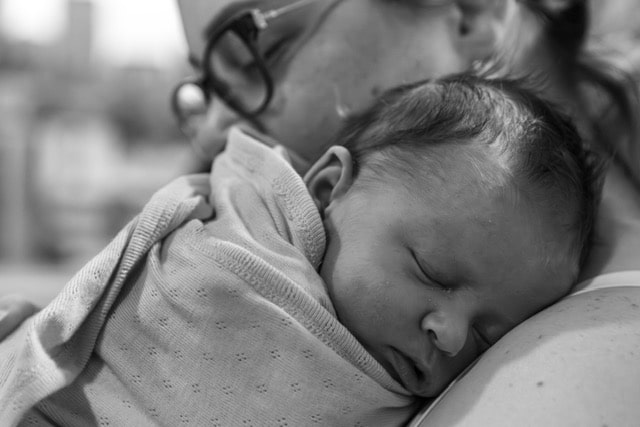
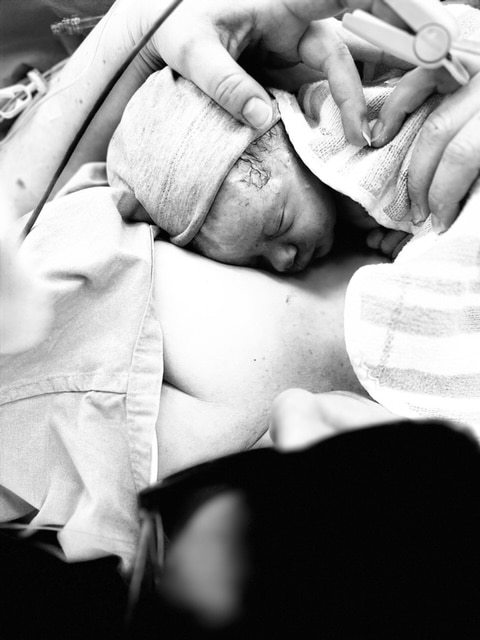
Topics Discussed
Early Parenting Unit, postpartum after loss, pregnancy after loss, sleep support
Episode Sponsor
Today’s episode is brought to you by Kiwi.co.
I must confess I’m not much of a crafty mum but Kiwi Co’s panda crate has been the best educational investment for Ottie. KiwiCo Panda Crate is a bimonthly subscription for babies ages 0-24 months. We receive a subscription box filled with playful, open-ended activities backed by research and designed especially for naturally curious and creative babies and toddlers.
KiwiCo Panda Crate products are not only safe and of high quality, but also age-appropriate and supportive of your baby’s growth.
I’m a big fan of quality activities that create the opportunity for play-based learning and Kiwi Co delivers hands-on projects that get the whole family involved. Whether you have a brand-new baby or a trailblazing toddler, the Panda Crate is perfect for your little one’s developing brain.
Unlock brain-building play with KiwiCo Panda Crate!
Get 20% off your first crate with code BIRTHSTORIES
Categories
Related Products
-
Birth Meditations
$49.00Narrated by Sophie Walker, these soothing and informative meditations help you feel supported and confident around birth.
Join the conversation
Sign up to get the latest updates, freebies, podcast releases straight into your inbox
@AustralianBirthStories
Follow along with us
@AustralianBirthStories
Follow along with us
@AustralianBirthStories
Follow along with us
@AustralianBirthStories
Follow along with us
@AustralianBirthStories
Follow along with us
@AustralianBirthStories
Follow along with us
@AustralianBirthStories
Follow along with us
@AustralianBirthStories
Follow along with us
@AustralianBirthStories
Follow along with us
@AustralianBirthStories
Follow along with us
@AustralianBirthStories
Follow along with us
@AustralianBirthStories
Follow along with us
